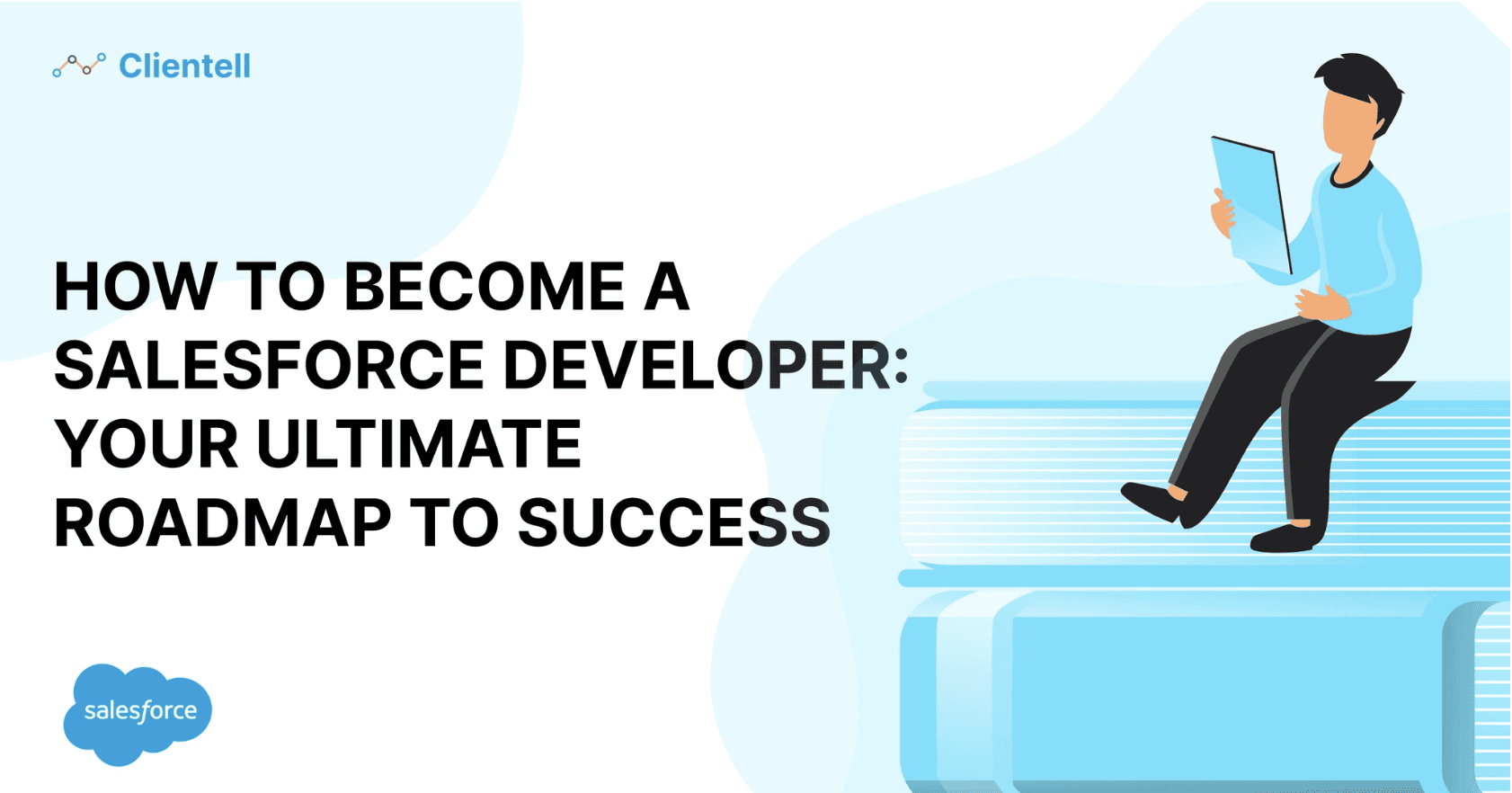Becoming a Salesforce Business Analyst is akin to becoming the translator between two worlds: the technical wizards and the business masterminds. You’re the bridge over troubled data lakes, the knight defending the sanctity of requirements, and the diplomat who turns business needs into Salesforce solutions. Sounds like a heroic journey? It is, and with the Salesforce ecosystem continuing its meteoric rise, the demand for skilled BAs has never been higher. This blog is your map to mastering the role, complete with a compass in the form of timelines, tables, and examples to ensure you don’t lose your way.
Understanding the Role of a Salesforce Business Analyst
Core Responsibilities
At its core, the Salesforce BA role revolves around turning business gobbledygook into Salesforce gold. Your job is to gather business requirements, analyze them like a detective with a magnifying glass, and then translate them into technical speak for your developer counterparts.
Requirement Gathering: Imagine sitting in a room with a sales manager who's passionately describing their challenges. You’ll need to listen carefully, ask probing questions, and understand their needs better than they do themselves.
Solution Translation: Once you've gathered all the insights, your task is to mold them into Salesforce solutions. This might involve customizing fields, automating processes, or designing dashboards that the CEO will actually want to look at.
Stakeholder Collaboration: You’re the go-between, the negotiator, the person who ensures that what the business wants is what the techies deliver.
Required Skills
To succeed, you need to be a blend of Sherlock Holmes, Steve Jobs, and your high school math teacher. Let’s break that down:
Technical Skills:
Salesforce knowledge: Understand the platform’s features, limitations, and best practices.
Data Models: Know how Salesforce structures data.
Reporting and Dashboards: Be able to design reports that make sense and look great.
Business Skills:
Requirement Gathering: This involves listening, questioning, and documenting like a pro.
Process Mapping: Understanding and visualizing business processes.
Communication: Clear, concise, and effective communication with both techies and business folk.
Soft Skills:
Problem-Solving: Uncovering hidden problems and coming up with solutions.
Critical Thinking: Analyzing data, processes, and solutions from every angle.
Collaboration: You need to be the glue that holds teams together.
Typical Workday for a Salesforce Business Analyst
Here’s a snapshot of what a day might look like:

Before we move on to the Educational background needed to become a Salesforce Business Analyst, let’s have a quick look at the Average salary of a Salesforce Business Analyst in the USA.
Educational Background and Prerequisites
Relevant Education
While there isn’t a "Salesforce BA University," having a degree in Business, Information Technology, or a related field is like having a golden ticket. It opens doors and gives you a solid foundation.
Business Degrees: Help you understand organizational dynamics.
IT Degrees: Equip you with technical knowledge that’s critical for understanding Salesforce.
Salesforce Certifications Pathway
Certifications are your ticket to credibility in the Salesforce universe. They aren’t just badges; they’re proof that you know your stuff. Here are the certifications that can catapult you into the BA stratosphere:
Salesforce Administrator Certification: This is your foundation. It tells employers you understand the platform.
Salesforce Business Analyst Certification: This is the gold standard for BAs. It validates your ability to translate business needs into Salesforce solutions.
Timeline for Certification Preparation
Here’s a suggested timeline to help you prepare:

Gaining Practical Experience
Start with Hands-On Practice
Trailhead, Salesforce’s free online learning platform, is where you’ll begin your hands-on journey. Think of it as your practice arena before you enter the gladiatorial Salesforce job market.
Salesforce Developer Edition: Sign up for a free Salesforce Developer account to experiment with real scenarios.
Creating a Sandbox Environment: If you’re lucky enough to have access to a real Salesforce org, create a sandbox environment. This is your playground to test and try out ideas without breaking anything important.
Building a Portfolio
You need to showcase your skills in a way that says, "I’m not just talking; I’ve walked the Salesforce walk."
Volunteer Work/Internships: Offer your Salesforce skills to non-profits or small businesses. Real-world experience is invaluable.
Showcasing Projects: Document and present your work on a portfolio site or LinkedIn. Highlight your problem-solving abilities and the impact of your work.
Sample Projects or Case Studies: If you don’t have real-world experience, create mock projects. Design a Salesforce solution for a fictional company, and detail the process from requirement gathering to implementation.
Networking and Community Involvement
In the Salesforce world, who you know can be just as important as what you know.
Salesforce Communities: Join user groups and online forums. Engage, ask questions, and learn from others.
Attend Events: Salesforce events like Dreamforce are goldmines for networking and learning. Even local meetups can open doors.
Mentorship: Find a mentor who’s been there and done that. Their guidance can be invaluable.
Career Transition Strategies
For Existing Salesforce Professionals
If you’re already working in Salesforce, you’re halfway there. Transitioning from roles like Salesforce Admin, Developer, or Consultant to a BA role is a natural progression.
Leveraging Experience: Highlight your deep understanding of Salesforce in your current role, and how you’ve already been bridging the gap between business and technology.
For Non-Salesforce Professionals
If you’re coming from a different background, don’t worry; your experience is still valuable.
Bridging the Gap: Focus on transferable skills, such as business analysis, project management, or process improvement. Learn the Salesforce basics through Trailhead and connect them to your current expertise.
Building a Career Plan
Here’s a timeline to guide your transition into a Salesforce BA role:

Interview Preparation and Job Search Tips
Crafting an Impressive Resume
Your resume should be a knockout, a one-two punch of skills and experience. Here’s what to include:
Skills: Highlight your Salesforce certifications, technical skills, and business analysis expertise.
Experience: Tailor your resume to the Salesforce BA role. Emphasize any experience that involves translating business needs into technical solutions.
Preparing for Common Interview Questions
Here’s a sneak peek at what interviewers might ask:
Technical Questions: How would you customize Salesforce to meet a specific business need?
Behavioral Questions: Tell me about a time when you had to resolve a conflict between stakeholders.
Scenario-Based Questions: How would you handle a situation where the business requirements are unclear?
Job Search Strategies
Finding the perfect job requires strategy:
Where to Search: Salesforce job boards, LinkedIn, and company websites are your best bet.
Networking: Use your connections. A referral can significantly boost your chances.
Timeline for Job Search: Plan for a job search process that could take 2-3 months, from refining your resume to landing interviews.

Advanced Tips for Career Growth
Scaling the Heights: From Salesforce BA to Beyond
So, you’ve landed the job. Now what? It’s time to think about long-term career growth.
Continuous Learning and Skill Development:
Stay Updated: Salesforce releases updates three times a year. Keep learning and stay on top of new features.
Advanced Certifications: Consider specializations like CPQ or Marketing Cloud to broaden your expertise.
Transitioning to Senior Roles:
Career Path: After a few years as a Salesforce BA, you might consider moving into roles like Senior BA, Solution Architect, or even Product Manager.
Building a Personal Brand:
Contribute to the Community: Write blogs, speak at events, or mentor newbies. This not only helps others but also enhances your professional reputation.
Leverage Social Media: Use platforms like LinkedIn to share your insights, connect with peers, and establish yourself as an expert in the field.
Your Journey Begins Here
Becoming a Salesforce Business Analyst isn’t just about getting a job—it’s about embarking on a career path that offers endless opportunities for growth, learning, and impact. Whether you’re starting from scratch or transitioning from another role, the journey is challenging but immensely rewarding. So, take that first step, keep learning, and before you know it, you’ll be the go-to Salesforce BA in your organization.
Becoming a Salesforce Business Analyst is just one path in the Salesforce ecosystem. From Salesforce Developers to Salesforce Admins and Salesforce Consultants, each role plays a crucial part in business success. This guide explores how these diverse roles collaborate and offers practical steps to mastering the Salesforce BA position.





